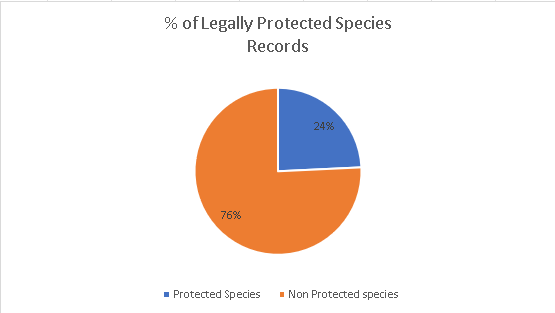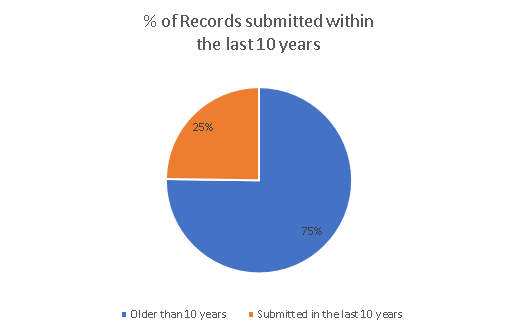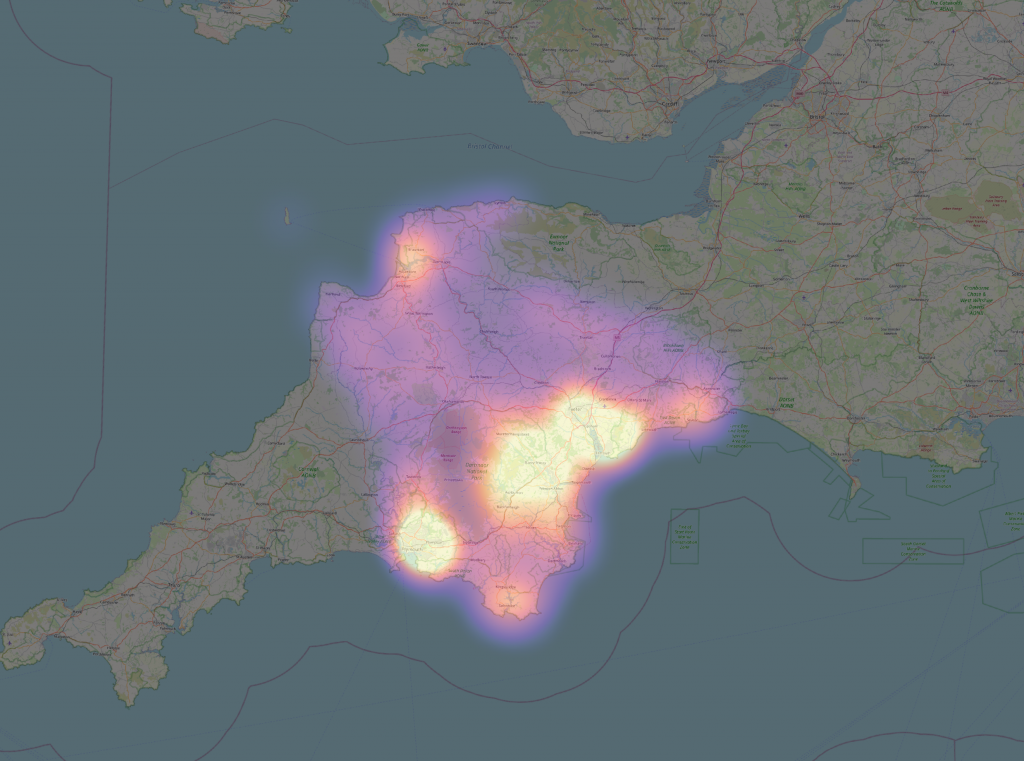Species Data
DBRC captures significant species records during the many surveys that we undertake throughout the year for various projects, but as importantly, we also work in partnership with hundreds of other organisations and individuals to ensure that information on species within the county flows to us from a wide range of sources. This combined knowledge can be turned into larger datasets, through aggregation, data management, including quality control and formatting by DBRC. It can then inform decision making, through dissemination in varying products and services, which add context and value. Users include Local Authorities, the Environment Agency, Conservation NGO’s, Ecological Consultants, and more localised projects such as groups developing a Neighbourhood plan.
A vital part of our work includes liaison with specialists and recording groups, who kindly allow us to hold and share their data, to underpin our efforts. We also frequently receive data submissions from the public which can supplement our datasets, including when unusual or rare species are submitted on an ad hoc basis. All records submitted to us go through a vigorous verification and validation process, as a part of our primary role to provide high quality data.
To do this DBRC maintain a range of specialisms within our team, and also work closely with recording groups and key individuals, who help ensure the data we hold is of a known quality. More active recording groups can generate tens of thousands of records per year, with the administration and co-ordination of their efforts falling to often long serving volunteer members. DBRC aims to support these groups where possible with staff time/expertise, loan or storage of equipment, or just simply printing off newsletters etc.
DBRC currently holds over 8.5 million records of species occurrences throughout Devon. Protected species comprise approximately 24% of the total records we hold, and 25% of our total species data been added onto our system within the last 10 years*.


Data collated from Terrestrial data holdings

The above map highlights that area’s with high concentrations of people (Exeter, Plymouth, Barnstaple) and areas with high concentrations of development, such as Teignbridge District, can really focus the collection of data through citizen science, and professional ecological surveys, into these areas. Recording effort in the wider countryside is diluted in comparison, but many projects, members of the public, specialist recorders and species interest groups do gather very valuable information annually in the wider countryside. However, this bias does exist, and it is an ongoing challenge, as Devon is a huge county, with low populations in rural areas. Whilst gathering species data may be easier through the use of apps and technology, it is yet to offer a solution to this problem.
There is also a lack of long term monitoring of species outside of a very few discreet locations, making reporting on the State of our Environment a continual challenge. Data DBRC holds can be used in conjunction with local context and expertise, to give insight, but more investment in structured gathering of data over time, is the only way to resolve this issue.
Below is a list of our current data partners, whose help underpins the work we do:
- Amphibian and Reptile Conservation
- Amphibian and Reptile Groups of the UK (ARGUK – via Record Pool)
- Bat Conservation Trust
- BSBI
- Buglife
- Butterfly Conservation
- Dartmoor National Park Authority
- Devon Beetle Recorder (Martin Luff)
- Devon Bryophyte Group
- Devon branch of the British Dragonfly Society
- Devon Fly Group
- Devon Fungus Group
- Devon Mammal Group
- Devon Reptile and Amphibian Group
- Devon Spider Recorder (Matt Prince)
- Devon Water Vole Recovery Project
- Devon Wildlife Trust
- Doctor Andy Stevens Collection
- Earthworm Society of Britain
- East Dartmoor NNR Otter Project
- English Nature
- Environment Agency
- Exmoor National Park Authority
- Exmoor Natural History Society
- Exmouth Local Group
- Hypogean Crustacean Recording Scheme
- Lundy Field Society
- River Axe Otter Survey
- South West Lakes Trust
- The Mammal Society
- Water Vole Database and Mapping Project